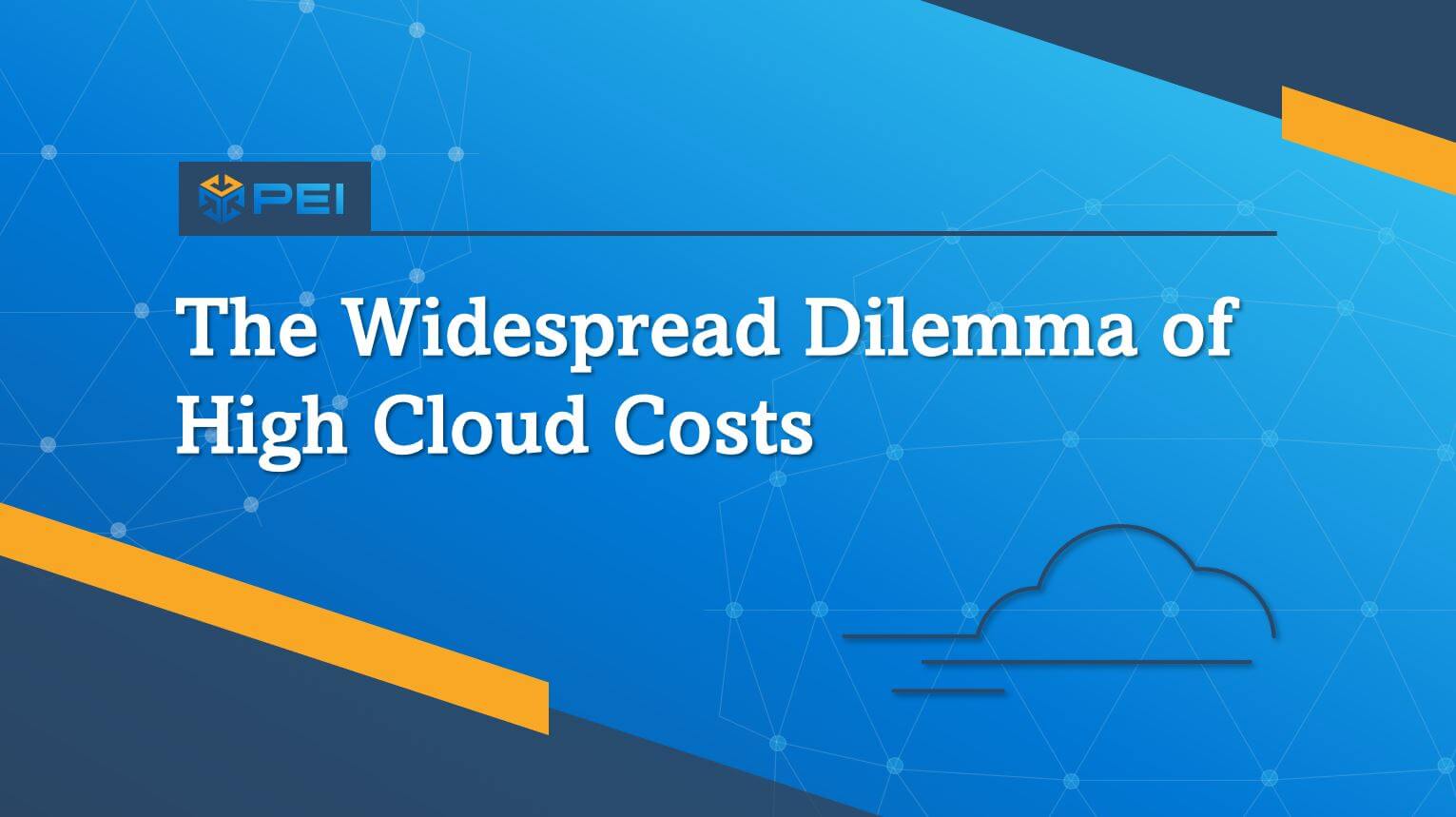
The cloud has revolutionized the business landscape, offering both scalability and flexibility to a wider array of businesses than have previously had access to these capabilities. However, organizations are increasingly grappling with the issue of high cloud costs and hidden expenses. According to Gartner, more than half of all enterprise IT spending will be on public cloud computing by 2025.
While it’s reasonable to expect cloud spending to go up considering the great migration to cloud computing, it doesn’t necessarily have to increase by that much. According to recent surveys, 30% of cloud spending is already wasted.
If you think your organization might be spending more than necessary on cloud computing, read on.
Causes of High Cloud Costs
1. Lack of Visibility
Many businesses lack the ability to monitor cloud spending across multiple platforms and projects. This makes it challenging to identify cost drivers and effectively manage cloud budgets. Thankfully, modern cloud cost management solutions provide comprehensive visibility into cloud usage, costs, and performance metrics.
2. Complex Pricing Structures
Cloud service providers offer intricate pricing models that can be difficult to navigate. Variations in pricing across services, regions, and usage patterns make it hard for companies to accurately estimate and forecast costs. To address this challenge, businesses can leverage cloud cost management tools that provide cost estimation and budgeting capabilities.
3. Underutilized Resources
Inefficient resource utilization significantly contributes to high cloud costs. Provisioning more resources than necessary or failing to scale down unused resources result in unnecessary expenses. To optimize resource utilization, businesses can adopt cloud cost management solutions that provide insights into resource utilization patterns.
Common Unanticipated Cloud Costs
1. Data Transfer and Egress Charges
Data transfer and egress charges are often overlooked but can quickly accumulate. Underestimating the amount of data transferred between cloud services or between the cloud and on-premises systems can lead to unexpected costs, especially when dealing with large datasets or high network traffic.
To mitigate these costs, businesses can employ strategies such as data caching and compression. Leveraging content delivery networks (CDNs) can also reduce the volume of data transfer and minimize egress charges. Additionally, monitoring data transfer patterns and adopting more efficient practices can help businesses avoid unnecessary expenses.
2. Excessive Storage Costs
Cloud storage costs can be deceptive, particularly for businesses unaware of the expenses associated with long-term data storage. Inefficient storage practices or the lack of effective data lifecycle management strategies can result in unnecessary expenses as data volumes grow over time.
To mitigate storage costs, companies can implement data lifecycle management policies that define rules for data retention, archival, and deletion. By regularly reviewing and purging unnecessary data, businesses can optimize their storage usage and minimize storage costs.
3. Inefficient Workload Placement
Improper placement of workloads within the cloud can lead to sub-optimal resource utilization and increased costs. Failing to select the most cost-effective options in terms of availability zones, regions, or instance types can result in higher cloud expenses without additional benefits.
To address this challenge, companies can leverage cloud cost management solutions that provide workload placement optimization capabilities. These tools can analyze workload requirements, performance metrics, and pricing information to recommend the most cost-effective placement options.
Effective Cloud Cost Management Solutions
1. Utilize Cloud Cost Management Tools
As mentioned above, cost estimation and budgeting tools help organizations track, analyze, and optimize their cloud expenditures, enabling them to make data-driven decisions. Furthermore, advanced cloud cost management solutions offer features such as cost allocation, showback/chargeback mechanisms, and real-time cost monitoring, providing businesses with a holistic view of their cloud spending and enabling them to optimize costs effectively.
2. Optimize Resource Utilization
Companies should regularly monitor and analyze resource utilization to identify areas of inefficiency. Scaling down underutilized resources and rightsizing instances can lead to significant cost savings while ensuring optimal performance.
The cloud cost management tools we’ve mentioned often provide insights into resource utilization metrics, such as CPU utilization, memory usage, and network bandwidth, helping businesses identify opportunities for resource optimization and cost reduction.
3. Monitor Data Transfer and Workload Placement
Keep a close eye on data transfer and egress charges by optimizing data transfer patterns and leveraging caching techniques. Additionally, carefully plan workload placement to ensure optimal resource utilization and cost-effectiveness. Cloud cost management tools can provide visibility into data transfer volumes, network traffic, and workload placement, allowing businesses to analyze and optimize these aspects to minimize costs.
High cloud costs and hidden expenses pose significant challenges for businesses today. However, with the right strategies and tools in place, businesses can optimize their cloud investments and stay ahead in today’s competitive landscape.
Prioritizing cloud cost management not only reduces unnecessary expenditures but also ensures that businesses extract maximum value from their cloud infrastructure. By adopting proactive cloud cost management practices and leveraging modern cost optimization tools, businesses can achieve cost efficiency, improve their financial performance, and drive business growth in the cloud era.
Turn to PEI for Effective Cloud Cost Management Solutions
PEI is a proud Cloud Solution Provider. In addition to setting up your cloud infrastructure, we can help you manage it. For example, Our Azure Optimization Workshops pair customers with certified Azure Solutions Architect Experts to examine existing cloud architecture and identify strategic opportunities to optimize, automate, and consolidate key areas of your environment. Give us a call at (303) 786-7474 to learn more.




